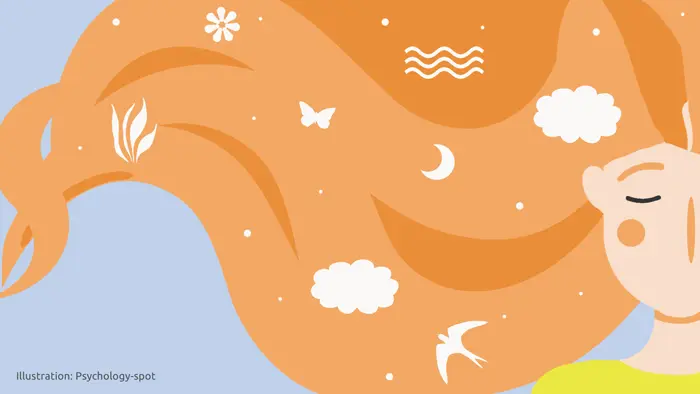
They say that “opposites attract”, but in general, when we are looking for a partner, we have a tendency to focus on the things we have in common, be it interests, values, way of seeing the world or similar personality traits.
Although discrepancies and differences can undoubtedly enrich the relationship, looking in the same direction makes things much easier. Therefore, looking for our reflection in a partner is not entirely unreasonable.
Better similar, but not too much
After years of relationship, couples end up looking alike. Perhaps it is not only due to the time we share, but also to the fact that, from the very beginning, we look for a certain harmony with ourselves in a partner.
A study conducted at the University of Stirling suggests that we generally gravitate towards those who have personalities more similar to our own, but are only interested in having certain traits in common. We should be similar, but not too much.
The psychologists enlisted 383 men and women, who underwent a personality test and then viewed 100 dating app profiles to find a partner. The profiles were fictitious, created by Artificial Intelligence, and were made up of photos of people smiling and a personal description, through which some of their personological features were revealed.
Participants had to choose a potential partner, someone they wanted to meet because they thought they could start a romantic relationship. Thus, psychologists found that people tended to opt for personalities similar to theirs, but only in some traits.
What personality traits do we look for in a partner?
People who considered themselves to be more friendly, open and extroverted tended to choose, in turn, profiles of potential partners that resembled them; that is, they were more open to new experiences, affable, spontaneous and sociable.
However, it was curious that people did not seem particularly inclined towards profiles with levels of emotional stability similar to theirs. In fact, most people chose those with high levels of emotional stability, indicating that this is a trait we look for in a partner, regardless of how emotionally stable we ourselves are. Nor did they look for coincidences in the levels of responsibility.
This research suggests that looking for some of our traits in a partner is a common trend, probably to reduce the likelihood of conflicts and make everyday life easier. However, we do not want it to be a “replica” of ours either, since the diversity that the other brings is extremely important to help us grow, broaden our perspective, discover new horizons and, ultimately, nurture the relationship.
Therefore, the next time you ask yourself “What do I look for in a partner?”, perhaps you should not look so much outside, but inside. Ask yourself what values and traits are important to you. What identifies you? Then look for that in the other.
Source:
De la Mare, J. & Lee, A. J. (2023) Assortative preferences for personality and online dating apps: Individuals prefer profiles similar to themselves on agreeableness, openness, and extraversion. Personality and Individual Differences; 208: 112185.



